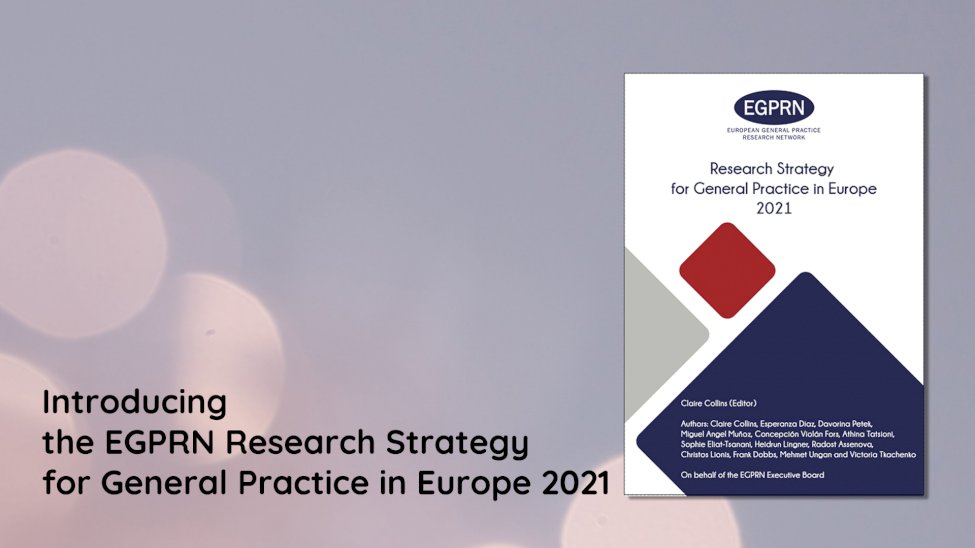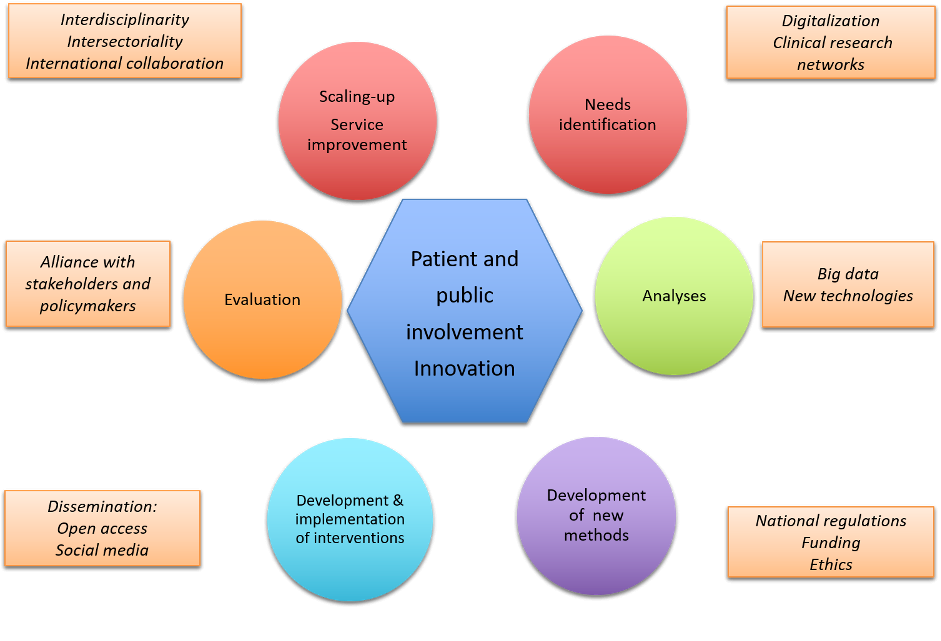Claire Collins and Davorina Petek
On behalf of the European General Practice Research Network
A strong research basis is a necessity to provide effective health care; and research in general practice is important in terms of improving patient outcomes effectively. In 2009, the first European General Practice Research Network (EGPRN) Research Agenda (RA) was published. It was developed at the request of WONCA Europe and related to the European Definition of General Practice/Family Medicine GP/FM. It presented the first proposal for European research in GP/FM and related the then current scientific evidence to each of the core competencies and characteristics of general practice/family medicine (GP/FM). The RA pointed out research needs and action points for health and research policy.
The EGPRN have recently published its updated research agenda, now framed as a research strategy providing an overall plan with guidance to achieve specific goals. Based on a review of research in GP/FM 2010-2019 and on a proposed modified research wheel (Figure 1), recommendations are suggested to advance research in GP/FM. Within the strategy a framework is presented to be adapted and used for specific areas by those involved in research in GP/FM in individual countries
The vision of the EGPRN Research Strategy for General Practice in Europe 2021, is to promote relevant research of the highest quality within GP/FM where an evidence-based culture informs efforts to improve the health of citizens and to develop services. The mission of the EGPRN Research Strategy 2021 is to contribute to the strategic development and growth of research and innovation across the European GP/FM research community.
Figure 1: Theoretical Perspective - modified research wheel for GP/FM research
The strategy propounds that an innovative and sustainable-oriented approach is needed in GP/FM research going forward. Working to improve leadership, to build capacity, to create a research culture among non-researcher GPs and to obtain external funding is crucial.
In order to continue to improve the quantity, quality, impact and co-ordination of GP/FM research, a key concept noted is that of capacity. Research capacity building (RCB) is critical at the individual, organisational and environmental levels. It is necessary to consider what the knowledge deficits and the relevant actions required are and to set research priorities. The EGPRN Research Strategy proposes that GP/FM researchers need to establish and engage in both national and international networks to ensure the successful delivery of a portfolio of high-quality studies.
Knowledge transfer and exchange (KTE) is an important component to ensure a process of exchange between researchers and knowledge users in broader terms.
The relationships between research, policy and practice in primary care are complex and might not be possible to disentangle and solve without an innovative framework and theoretical understanding. To address these gaps, EGPRN Research Strategy recommends more user involvement, including patients, health care providers, policymakers and other relevant stakeholders, greater use of theoretical approaches in research focused on implementation and the use of participatory methods.
Since GPs increasingly have more information resources, such as electronic medical records, an effort is required to carry out more research using real world data. Alliance with stakeholders is necessary at several stages of the research wheel in order to achieve responsible innovation, choose the outcomes and measures that can be realistically implemented, improve dissemination of the findings and scale-up evidence-based solutions.
The impact of a research strategy can be measured in terms of capacity building, scientific productivity (dissemination of research results), establishment of networks and collaborations, involvement of stakeholders and policy makers, involvement of the population and eventually in improving the health of the citizens. We encourage those involved in GP/FM research across Europe to utilise the strategy for their own country’s particular context and stage, selecting the appropriate recommendations relevant for same. Translations of the EGPRN research strategy are permitted. Please see www.egprn.org for details and requirements.


